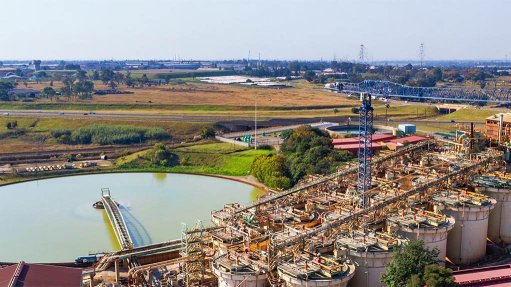BMI outlines most prominent mineral, metal trends for the coming years
Research firm BMI says the metals and mining industry will continue to grapple with changing metal consumption patterns, accelerating demand for critical minerals and heightened governmental intervention in supply.
The firm says markets with scarce resources and those with abundant resources will have varying policies in attempts to shore up mineral sufficiency. This trend has already started and will intensify in coming decades.
Despite expansions in crucial raw material production and trade over the last decade, demand for metals and minerals required for the global low-carbon transition will significantly outpace supply.
“This is likely to create shortages in the market for important minerals and metals including cobalt, copper, lithium and nickel.
“As a result, we expect governments of markets with abundant resources to safeguard their national interests by consolidating state miners, nationalising mining assets and boosting government involvement in mineral trade,” BMI explains.
BMI expects consolidation to become more prevalent in the mining industry in coming decades as it addresses the issue of differing production goals by miners while providing synergies for transport and operational capabilities.
The firm adds this change will also give governments a greater influence over the supply outlook alongside a country's consumption, export and import targets.
Finally, this feeds into the development of downstream industries and the supply of vital minerals for the domestic market.
BMI also expects more nationalisation of mining assets, especially in developing markets, to ensure the most is made of natural resources to ensure domestic sufficiency.
TRADE RESTRICTIONS
Future import and export limitations on minerals will increase across the broad mining spectrum.
BMI says that, to balance geopolitical relationships and domestic mineral sufficiency, trade restrictions such as heightened taxes and export quotas will become more common when mineral supply depletes.
This limits trade outflow of domestic minerals through higher prices for importing markets and capping limits on trade volumes, ultimately to ensure domestic sufficiency while still enabling some form of trade.
In the Organisation for Economic Cooperation and Development’s '2023 Trade Policy' report, it noted that export restrictions on vital raw materials have multiplied five-fold from 2009 to 2020. The analysis examined international exports of metals and minerals such as cobalt, tin, copper, nickel, lithium, steel and others.
In the future, BMI states, there is an increasing risk of markets colluding to form a cartel-like structure to control global mineral supplies.
Owing to the potential impact that production restrictions and pricing influences could have on export values and overall economic growth, emerging markets that rely on their own natural resources may be more receptive to the idea.
Moreover, BMI says developed markets will continue seeking to diversify trade routes to mitigate supply risks caused by an overdependence on key players.
Since many major economies want to diversify away from China, global leaders are in discussion with one another to form agreements around critical minerals supply.
The US-led Mineral Security Partnership, announced in June 2022, for example, is a collaborative effort between the European Union (EU) and 12 markets that aim to reduce reliance on China and strengthen the global critical minerals supply chain.
In March, the US and Japan signed a critical minerals agreement that seeks to develop a more secure, reliable supply chain for critical minerals.
Additionally, the EU Critical Raw Materials Act outlines critical mineral import diversification as one of the central components of its plan to boost critical mineral production.
By 2050, BMI expects to see the critical minerals trade environment undergo significant change as major economies work alongside each other to secure stable and more reliable supply routes.
TECHNOLOGY FRONT
Technological advances, such as new age artificial intelligence, will be at the forefront of mining companies' efficiency and productivity goals in coming years.
BMI also considers it likely that alternatives to traditional ground-based mining will emerge and gain traction as technology adapts to expand the frontiers for the mining industry.
Miners will re-orient their company growth strategies to meet the needs of the green energy transition by increasing exposure to future-facing commodities.
BMI also finds that environmental concerns are expected to become increasingly stifling for mining and metal companies, as sustainability and net zero goals will only edge higher in coming decades.
Over the coming decades to 2050, the ability to conform to the changing dynamics of the industry will determine long-term company survival.
Governments and investors alike have adopted a pro-sustainability rhetoric as climate change conditions worsen and pressure mounts to reduce carbon emissions.
To this end, mining companies play a vital role, in providing the minerals and metals needed to carry out the transition to cleaner energy sources. However, BMI says mining companies must also decarbonise their operations to remain competitive in the current investment climate.
BMI expects an increasing number of miners to look to renewable energy through power purchase agreements or self-generation, as well as the use of cleaner fuels in vehicles.
The firm says consumers are also increasingly interested in sourcing low-carbon metals, which helps the “green” metals market to grow significantly.
MATERIAL SUBSTITUTION
Lastly, BMI foresees that substitution to reduce demand will continue.
Although the pace of substitution will slow, as historical price relationships persist, the risk of certain metals losing their market share to alternatives will remain high.
For example, BMI expects refined nickel to increasingly lose its prominence to cheaper alternative, nickel pig iron.
While steel will remain in demand owing to the unique qualities it possesses at such a low cost, copper will lose dominance in traditional markets to aluminium but regain ground in advanced applications of the future and renewable energy systems.
Copper demand and prices will be supported by strong power grid investment and falling mine ore grades in the coming years.
Primarily used in power grid construction, the outlook for this sector remains strong.
Article Enquiry
Email Article
Save Article
Feedback
To advertise email advertising@creamermedia.co.za or click here
Press Office
Announcements
What's On
Subscribe to improve your user experience...
Option 1 (equivalent of R125 a month):
Receive a weekly copy of Creamer Media's Engineering News & Mining Weekly magazine
(print copy for those in South Africa and e-magazine for those outside of South Africa)
Receive daily email newsletters
Access to full search results
Access archive of magazine back copies
Access to Projects in Progress
Access to ONE Research Report of your choice in PDF format
Option 2 (equivalent of R375 a month):
All benefits from Option 1
PLUS
Access to Creamer Media's Research Channel Africa for ALL Research Reports, in PDF format, on various industrial and mining sectors
including Electricity; Water; Energy Transition; Hydrogen; Roads, Rail and Ports; Coal; Gold; Platinum; Battery Metals; etc.
Already a subscriber?
Forgotten your password?
Receive weekly copy of Creamer Media's Engineering News & Mining Weekly magazine (print copy for those in South Africa and e-magazine for those outside of South Africa)
➕
Recieve daily email newsletters
➕
Access to full search results
➕
Access archive of magazine back copies
➕
Access to Projects in Progress
➕
Access to ONE Research Report of your choice in PDF format
RESEARCH CHANNEL AFRICA
R4500 (equivalent of R375 a month)
SUBSCRIBEAll benefits from Option 1
➕
Access to Creamer Media's Research Channel Africa for ALL Research Reports on various industrial and mining sectors, in PDF format, including on:
Electricity
➕
Water
➕
Energy Transition
➕
Hydrogen
➕
Roads, Rail and Ports
➕
Coal
➕
Gold
➕
Platinum
➕
Battery Metals
➕
etc.
Receive all benefits from Option 1 or Option 2 delivered to numerous people at your company
➕
Multiple User names and Passwords for simultaneous log-ins
➕
Intranet integration access to all in your organisation

















